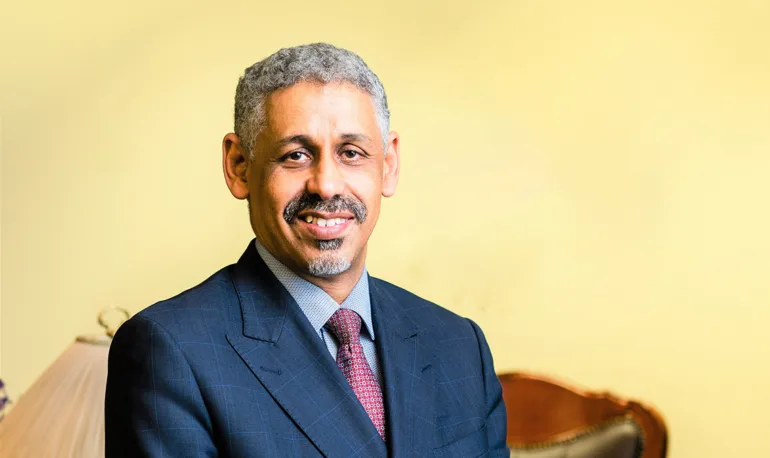Mauritania’s former economy minister, Sidi Ould Tah, was on Thursday elected President of the African Development Bank (AfDB), succeeding Nigeria’s Akinwumi Adesina, and taking over at a time of looming financial uncertainty, including the possible withdrawal of U.S. funding.
Tah, 60, won the prestigious post after three rounds of voting, securing 76.18% of the vote, a significantly faster victory compared to Adesina’s six rounds in 2015.
Zambian economist Samuel Munzele Maimbo placed second with 20.26%, while Senegal’s Amadou Hott trailed in third at 3.55%.
To win, a candidate must secure a majority of votes from all 81 member countries and a majority of the 54 African nations that make up the AfDB. Tah achieved 72.37% of the African vote, consolidating his position as a unifying choice across regional lines.
“I wish to congratulate Dr. Sidi Ould Tah on his successful election as the President-elect of the African Development Bank Group,” Maimbo said in a statement. “Today, the Governors have chosen the leader they believe will best deliver the vision of the Africa we want at this pivotal moment.”
A regional bridge and new challenges
Tah’s decade-long leadership of the Arab Bank for Economic Development in Africa (BADEA) positioned him as a consensus candidate, especially among North African states. His track record there is expected to help bridge longstanding divides with sub-Saharan Africa.
In his campaign for the AfDB presidency, Tah pledged to strengthen regional financial institutions, bolster Africa’s financial autonomy, leverage demographic growth for development, and promote climate-resilient infrastructure.
A powerful legacy
The African Development Bank, established in 1964, is one of the largest multilateral development institutions in the world. Funded by member subscriptions, capital markets, and loan repayments, the AfDB plays a critical role in financing projects across Africa.
Tah’s immediate challenge will be navigating a difficult international environment. The Trump administration in the U.S. has signaled plans to cut $500 million in funding to AfDB programs aimed at supporting low-income African countries.
All five candidates for the presidency had pledged to build on Adesina’s vision and expand the Bank’s impact. Known as the “High 5s”, these priorities include: light up and power Africa, feed Africa, industrialize Africa, integrate Africa, and improve the quality of life for Africans.
In his farewell address on Tuesday, Adesina highlighted a decade of transformation.
“We have built a world-class financial institution that will continue to advance Africa’s position in a rapidly changing global development landscape,” he said.
Adesina said 565 million people benefited from AfDB projects under his leadership.
Major projects include support for the construction of the Gabal El Asfar wastewater treatment plant in Egypt — the largest in Africa.
The bank also helped finance a bridge connecting Senegal and the Gambia, expanded the port of Lome in Togo and supported sanitation projects in Lesotho and access to electricity in Kenya, he said.
From 2015 to this year, the bank’s capital more than tripled from $93 billion to $318 billion, he added.
AFP


